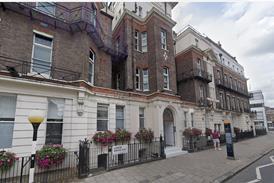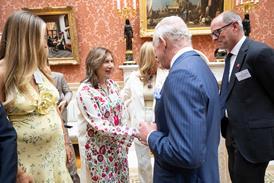A High Court judge has granted permission for a woman to appeal her divorce settlement, after a lack of representation due to legal aid cuts led a district judge to conclude incorrectly that she was a liar and a bigamist.
In Azizi v Aghaty, Mr Justice Holman (pictured) said a judgment made by a deputy district judge, leaving the wife with just a 25% stake in a flat in Tehran, was unreliable and ‘objectively unfair’.
Emphasising that he was not criticising the judge for reaching the conclusion she did, he said: ‘She was faced, as so often occurs since the almost wholesale abolition of legal aid, with two unrepresented litigants in person.
‘The first language of neither of them is English, and, as will emerge, the wife in particular had difficulties with that language. Given those difficult circumstances the deputy district judge clearly did her best.’
Holman also noted that the wife, who was brought up in Iran, did not have an interpreter at the original hearing in January 2015, despite a judge in a previous hearing asserting that she needed one.
He said: ‘Many of the recorded answers of the wife are somewhat "garbled" and it’s not at all clear from the transcript that she fully understood every line of questions, nor that her answers are entirely legible.’
In the divorce settlement, the deputy district judge decided to transfer a jointly owned property in Dartford to the husband and ruled that a flat in Tehran, which the husband alleges was owned by his wife, should be transferred 75% to the husband, leaving the wife with 25%.
The reason the judge gave for what Holman described as a ‘striking decision’ was that the wife committed bigamy and ‘lied until forced to admit it’.
However, according to the judgment, this statement referred to a marriage in Denmark that was forced, never consummated and subsequently annulled. The couple disagreed over whether this history was known to the husband before the UK marriage.
The deputy district judge sided with the husband, after questioning whether he would have applied for divorce proceedings if he had known that their marriage was, in truth, already void. She also said that the wife had lied about the Denmark marriage.
On appeal, Holman questioned the district judge’s line of questioning, saying: ‘She was pursuing a line of reasoning that may seem crystal clear to an experienced matrimonial lawyer, but may have been thoroughly confusing to lay parties’.
He said: ‘It is […] essential to appreciate that there is, or may be, a world of difference between being a party to a marriage which is objectively null and void because one of the parties is still married to another living person, and actually committing the crime of bigamy.’
Holman granted an appeal and remitted the matter for redetermination by a full-time district judge.
Following the judgment, a spokesman for the Ministry of Justice said:
A Ministry of Justice spokesperson said: ‘Our legal aid system is still one of the most generous in the world. Last year we spent £1.6bn on legal aid, almost a quarter of our departmental budget.
‘The spending review settlement we have reached with the Treasury for the next five years leaves legal aid almost untouched.
‘It's long been the case that some people represent themselves in court but we are increasing the support available. This includes spending £2m on advice for litigants in person, including improved online guidance, new court guides and explanatory videos.’



























12 Readers' comments